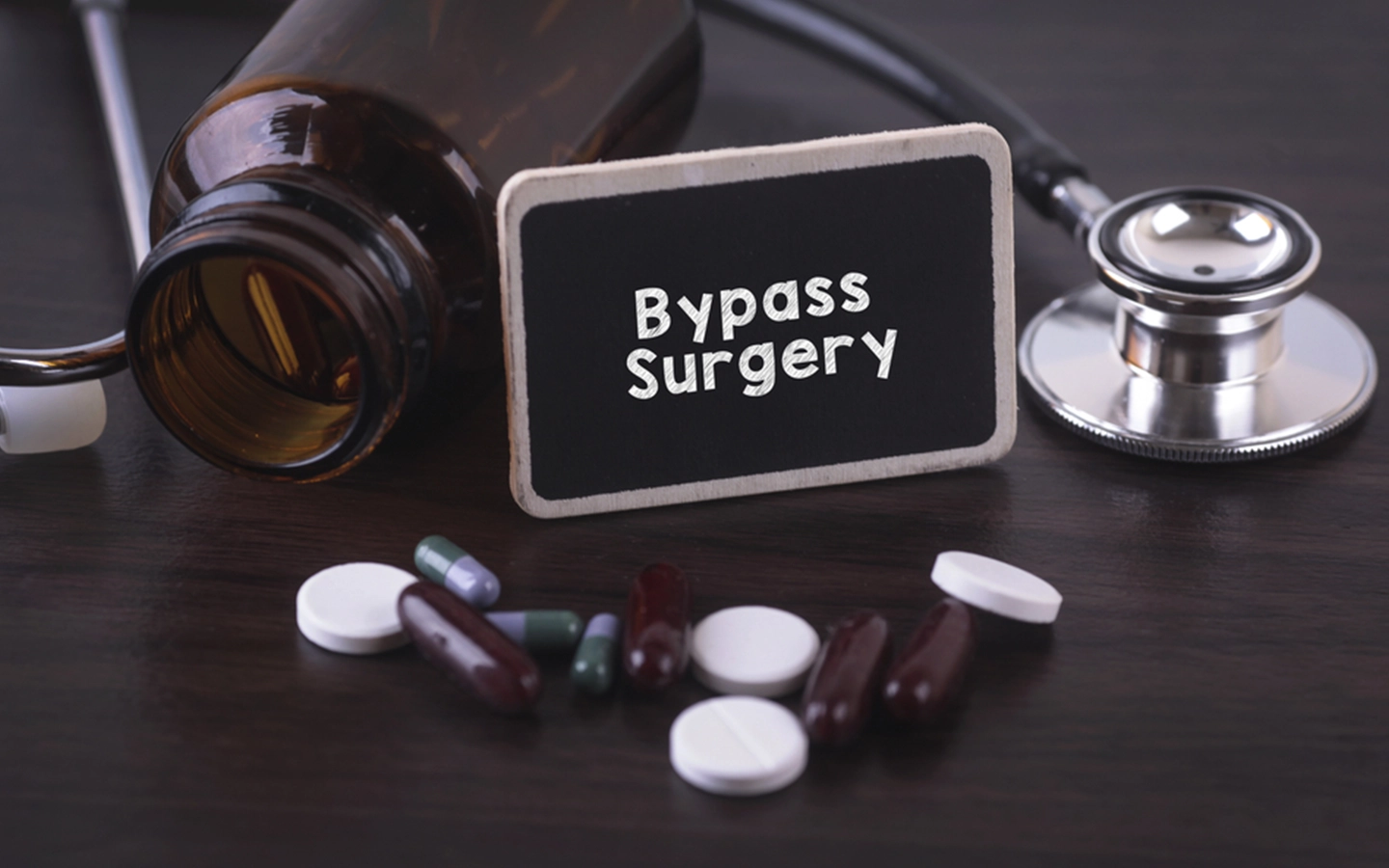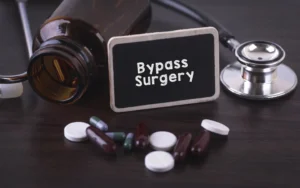Transforming Lives: Exploring the World of Gastric Bypass Surgery
Bariatric surgery helps obese people. Doctors use this surgery to help patients reduce weight and improve their health. Weight loss is difficult when additional pounds persist despite proper nutrition and exercise.
Gastric bypass surgery is a powerful tool that goes beyond conventional weight loss methods.
Dr. Maadico’s cosmetic department recognizes the unique aspirations and challenges of those considering this transformative procedure.
Consider this article as your gateway to understanding the profound impact of gastric bypass surgery, and trust Dr. Maadico’s cosmetic department in Iran to be your partner in achieving the transformative results you desire. This article shows how gastric bypass surgery improves life.
Are you considering Gastric Bypass?
Gastric bypass surgery requires obesity with a BMI of 30 kg/m2. Doctors consider health concerns and medical history before considering surgery.
General anesthesia is used for gastric bypass. This drug lets you sleep during surgery. Surgery takes 1–3 hours, and hospitalization lasts 3–4 days.
Gastric Bypass Surgery in Tehran is a viable option for weight loss, offering a cost-effective solution that can significantly improve patients’ lives while ensuring a relatively swift recovery period.
Weight Loss Surgery Options:
- Gastric Sleeve: A weight-loss surgery that removes part of the stomach, creating a banana-shaped stomach.
- Gastric Bypass Surgery: This entails creating a tiny stomach pouch and rerouting the small intestine to limit food intake and nutrient absorption.
- Duodenal Switch: The duodenal switch is a weight-loss procedure that reroutes the intestines.
- LAP-BAND: A surgical technique that limits food intake by putting an adjustable band around the upper stomach.
- Gastric Balloon: A non-surgical procedure that fills the stomach with an inflatable balloon to help you lose weight.
- Aspire Assist: The Aspire Assist uses a tube and pump to help people lose weight by removing some of their stomach contents after eating.
Who might benefit from Gastric Bypass?
Not all overweight people should have Gastric Bypass Surgery. This critical operation has significant risks and drawbacks. This will also demand considerable lifestyle changes. Before surgery, you must know what’s ahead and what to modify. The procedure’s success is mostly yours.
Obese people need a gastric bypass. An abnormal amount of bodily fat is obesity. This group will have Gastric Bypass Benefits. Gastric bypass surgery transforms lives. It helps overweight people look, move, and fix health issues.

By Bariatric Surgery, Overweight concerns are treated. To develop a more nuanced understanding of the issue, we will examine a spectrum of health issues associated with being overweight:
- Our first issue is diabetes. This raises blood glucose. Hypertension follows. And High blood pressure over time.
- Also, high cholesterol Blood flow is restricted by cholesterol on arterial walls.
- Sleep apnea is another. Some people cease breathing while asleep. Our headaches persist. Headaches are frequent. Leg vein troubles follow. The lower legs and ankles may discolor.
- Another issue is incontinence. A person has bladder difficulties. Lipid buildup in liver cells causes inflammation and damage. Ending with arthritis. Painful joints result from inflammation.
If you encounter any of these conditions, take care of yourself and see a doctor.
Weight loss prediction
Experience amazing weight loss with gastric bypass surgery! Patients lose weight fast, but for how long? Your right! Six months of amazing weight loss. Surgery requires time for recovery and adjustment. We reach weight normalcy at 18–24 months. Less change and consistency We finally built a block tower that doesn’t fall. This is when bariatric surgery patients lose 60–70% of their weight.
Researchers discovered something extraordinary. Observers found we can lose 80% of our extra weight. But People who have had gastric bypass surgery may gain weight subsequently. They can maintain their results for a long period by eating well and exercising.
Roux-Y Gastric Bypass
The Gastric Bypass Procedure can be done laparoscopically or conventionally. this is the most prevalent Bariatric Gastric surgery! A small portion is delicately removed from the stomach using a stapler or vertical bandage. It reduces food absorption.
After stomach separation, a Y-shaped small intestine is joined. This keeps food from interacting with gastric and intestinal fluids and bile.
Nutrient absorption is weaker, and calories are lower. We can do this procedure laparoscopically. Imagine a little tummy telescope! Laparoscopy uses small cuts. This accelerates bodily repair.
Post-op diet and lifestyle:
Your body needs proper healing after surgery. Rehabilitation requires a certain diet.
Gastric bypass can help you lose weight, but sticking to it takes more. Losing weight requires tough decisions!
- You must determine if you want to change your routine, eat less, and exercise more. Not all gastric bypass patients can eat. A personalized recovery diet helps you recover from sickness or surgery.
- It has stages to calm your tummy while recuperating. Start with tasty soups or drinks. Smooth, easy-to-eat purees follow.
- Reintroduce solids slowly after three months. Trust your body to repair itself. The stitches must heal, and your body must adjust to the diet.

- Start by drinking beverages. Milk, juice, broth, and water are acceptable. After a few days, different purees will be mixed with our mixture. These solutions suit you.
- We offer clear broths, soups, low-fat yogurt, jellies, and finely ground entrees. Such dishes shouldn’t have obvious portions.
Maintaining a pureed diet for weeks is essential. Your body will then be ready for mild, easy-to-eat food. The special diet is light. It serves excellent, tooth-friendly food. Canned fruit, pulp, soft-boiled vegetables, chopped eggs, and minced meat are edible. Patients must follow a diet for 8 weeks. They can then eat normally.
Gastric Bypass Recovery
After an injury, recovery time is measured. Gastric bypass recipients need time to recover. The recovery time depends on several things:
- Physical strength and health matter first.
- Second, their lifestyle and hobbies matter.
- Finally, their surgery type matters.
Did you know some patients take eight weeks to recover? But guess what? After minimally invasive surgery, many feel terrific within weeks!
Movement and physical exercise
Health and strength require daily exercise. You can exercise after gastric bypass surgery. Weight loss after surgery can be achieved by exercising. Rise and move after surgery. Start with easy workouts, then build intensity and duration.
More than burning calories, it enhances our bodies. Movement and exercise strengthen muscles. That’s good. A strict diet and rapid weight loss could deplete your energy. Without activity, your body may use muscle instead of fat.
Gastric Bypass Diet
Your body repairs and rebuilds with proper nutrition. After surgery, your diet must change considerably. Following dietary directions exactly will determine the result. My advice may differ, but all bariatric surgery patients need the essentials.
-
Eat minimal servings
A little stomach is like a superhero who can only eat a little. Just 30 cc of food can fit in the stomach following therapy. Over time, our stomachs grow. Three months later Consume 1.5 glasses of food! Eating small portions is important. This provides enough proteins and nutrients for good health.

-
chew your food
Eat small pieces and chew well before swallowing. Otherwise, food may get stuck in the stomach-intestine junction. If food gets stuck, you may vomit and have nausea. Did you know some doctors advise against gum? Don’t eat it because it could obstruct our stomach-intestine junction. Beware; that could cause complications!
-
Eating slowly
Slow eating slows intestinal transit. Dumping syndrome can arise from eating too much too rapidly. Slow eating stretches meals to 30 minutes.
-
Stay hydrated
Stay hydrated by drinking a lot. Ideally, drink 6–8 glasses of liquid daily. Stay hydrated! Drink water or calorie-free drinks. Enjoy tea or sports drinks. Drink slowly. Sip slowly and enjoy. Consider 30–60 minutes per glass. You can avoid dumping syndrome. Slow and steady wins the drinking race! Drinking 30 minutes before or after eating is bad. You see, our stomachs cannot digest food and drink. After eating, wait to drink.
Unsuitable food
Gastric bypass patients must avoid certain foods. Did you know some foods are uncomfortable? Yes, indeed! Our bodies may dislike some meals. We should watch our diet. Dry, sticky, or fibrous food can cause problems. Our bodies may struggle with sticky meats, hard bread, pasta, cereals, raw vegetables, and fruit and vegetable skins.
Choose carefully and eat well! Avoid carbonated drinks, which bloat.
Nutrient-deficient foods are unhealthy. These unhealthy foods are high in sugar, fat, and calories. Sugary dishes and desserts are unhealthy.
Select drinks wisely. Milkshakes, lemonades, fruit drinks, and equivalents are banned. Avoiding alcohol is essential. Alcohol is high in calories; hence, it may cause weight gain. It can also be addictive, making you drink it when you shouldn’t. Avoid alcohol and make smart choices! While high-calorie drinks and meals may not fill you up, they might ruin your weight-loss attempts.
Gastric Bypass Risks
- Significant Bleeding
- Shocking Infection
- A blood clot
- Hernias

- Having trouble breathing or with your lungs
- Stomach perforation
- Leaking in the digestive system is a problem.
- Gallstones
- Vomiting
- A condition characterized by hypoglycemia
- Malnutrition
- Ulcers
Pregnancy Risk
A unique and crucial body process is pregnancy. Pregnancy soon after surgery could harm the baby. Female partners in a special partnership must not have children and use special protection for two years after surgery.
The Last Word
In this article, we delve into the realm of gastric bypass surgery, exploring its transformative impact on individuals grappling with obesity, and also the aspects such as surgical procedures, recovery, lifestyle changes, and potential risks associated with this weight loss solution.
If you also grappling with the challenges of overweight and obesity, seize the opportunity to reclaim your health. Discover personalized solutions tailored to your unique challenges through a complimentary consultation with our experts at Dr. Maadico’s Cosmetic Department.
At Dr. Maadico, we recognize the significance of this decision, and our seasoned cosmetic department is poised to accompany you every step of the way. Trust our expertise to guide you through this journey towards a healthier, more vibrant you.
If you’re ready for a change, request a free consultation.
You may also be interested in knowing about:
Gastric Sleeve
MGB Surgery
Gastric Balloon
Adjustable Gastric Band
Plication for Obesity
FAQs
- How many years does gastric bypass last?
Gastric bypass surgery can lead to significant weight loss within the first 18-24 months, with patients losing 60-70% of their excess weight during that time.
- What can you eat never again after gastric bypass?
After gastric bypass surgery, patients should avoid certain foods, such as dry, sticky, or fibrous foods, hard bread, pasta, cereals, raw vegetables, and fruit and vegetable skins. They should also avoid carbonated drinks and high-calorie, sugary dishes and desserts.
- What are the side effects of gastric bypass?
The article mentions potential risks and complications of gastric bypass surgery, including significant bleeding, infection, blood clots, hernias, breathing difficulties, stomach perforation, digestive system leaks, gallstones, vomiting, hypoglycemia, malnutrition, and ulcers.
- How much weight can you lose after gastric bypass?
Some patients may lose up to 80% of their excess weight after gastric bypass surgery, but long-term success depends on maintaining a healthy lifestyle, including proper diet and regular exercise.
- Is gastric bypass surgery available in Iran?
Yes, it is. Compared to European countries and Iran’s neighboring countries, the cost of stomach surgery, which is one of the most common weight loss surgeries, is much more suitable and affordable in Iran.
All in all, if you are looking for successful and affordable weight loss surgery outside your country, consider Iran as a special option.


